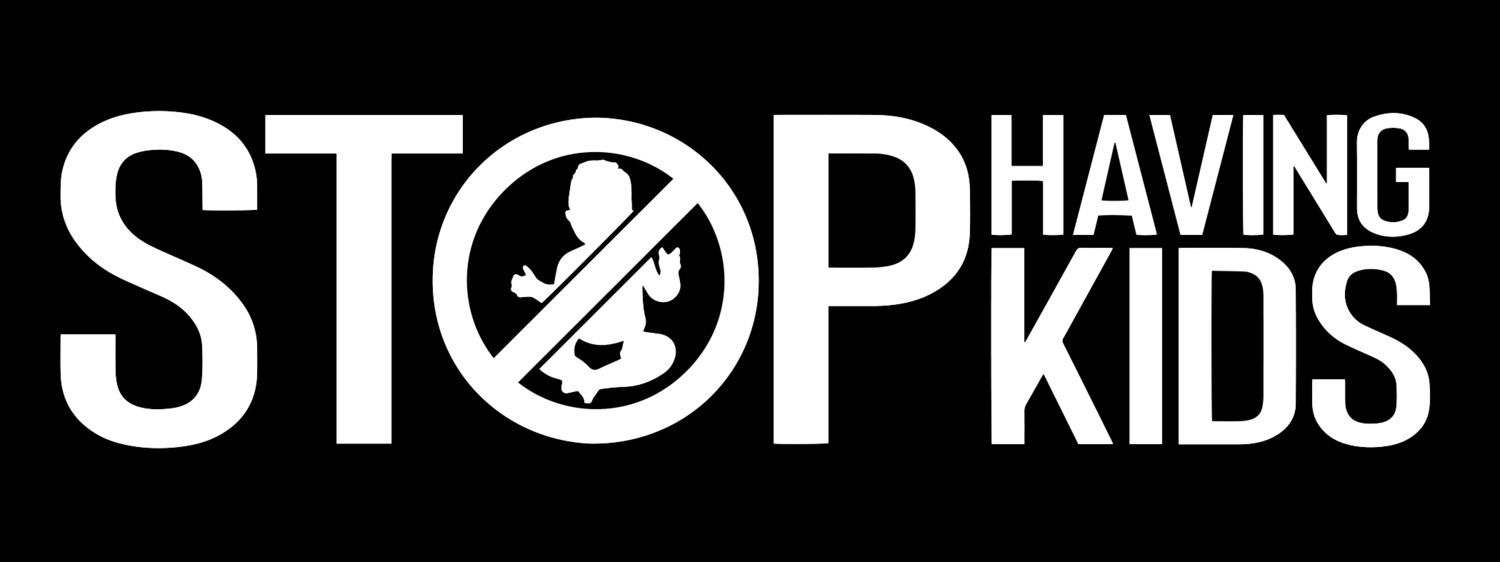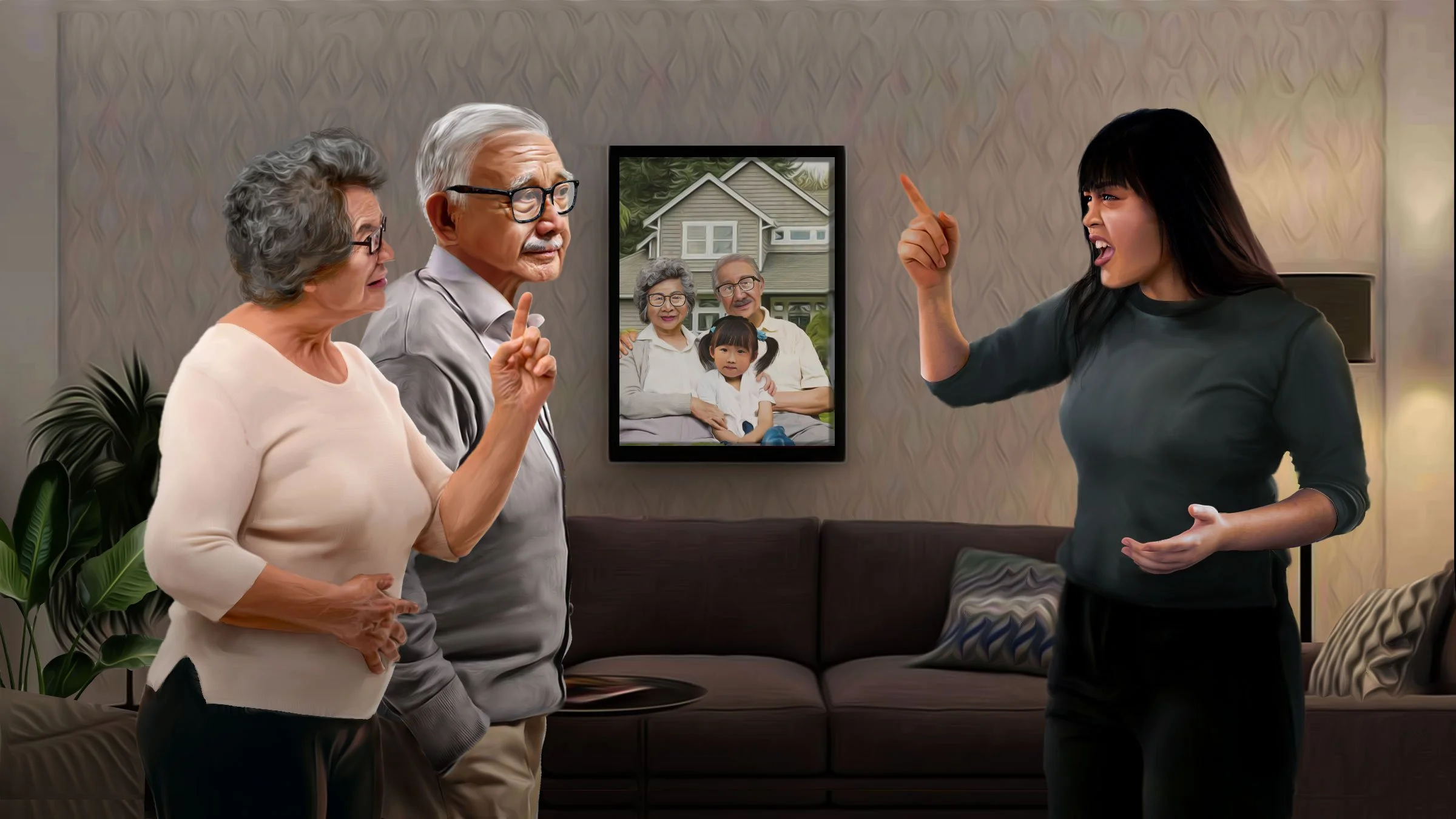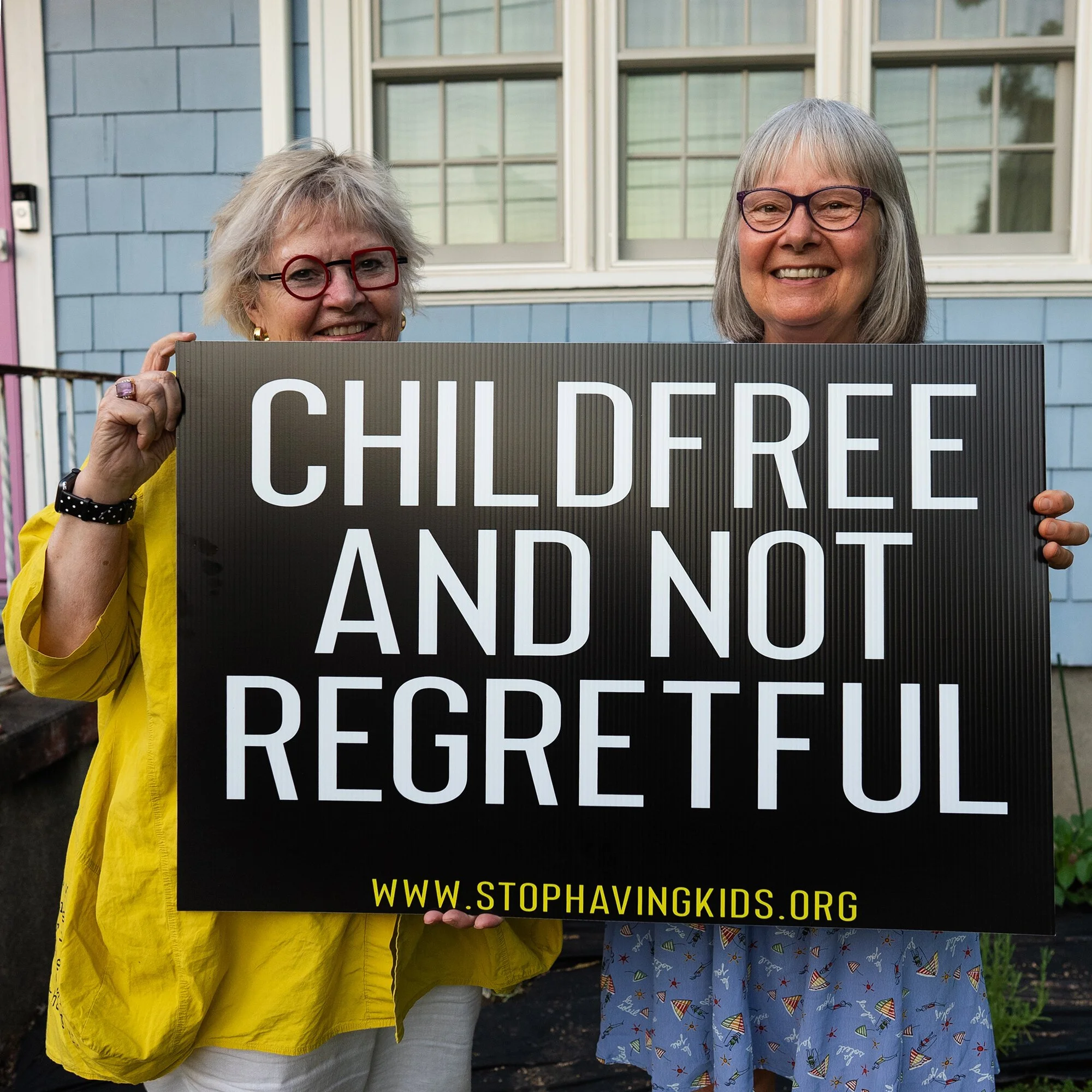Childfree Stories
Read stories submitted to SHK from people who are happy they didn’t have children.
Are Childfree People Generally Happier?
Read about what the studies say.
Childfreedom
“Procreation must be thought of in terms of benefits and risks. It is not a decision that should be made thoughtlessly, casually, or based on mere social expectations.”
-Sam Woolfe
Having Kids Isn’t For Everyone
Read More
Just as someone can have a strong desire to want biological or non-biological kids, someone else can have an equally strong desire—or a stronger desire—to not want any kids at all. Some people’s feelings towards wanting one or more kids changes over time, while others have known since they can remember that they never wanted to ever have kids. Some of us imagine a future of ourselves as a parent as our worst nightmare, while others imagine a future of ourselves with parenthood status as the best thing that could ever happen to us—and even possibly as our grandest achievement in life. Unfortunately, people who opt to be childfree often don’t receive the basic respect, acceptance, and validation they deserve for their decision and right to not have kids. Why should anyone have to have kids? What harm is done by someone not having a child? Do we have to go along with how we are conditioned to live our lives—or should we design our own life according to how we are interested in experiencing it?
Way too many of us let the pressures, expectations, and cultural behavior of others guide our lives—often to our own detriment—and to the detriment of others. Some of us are taught to be ourselves and follow our dreams, yet sometimes when people try to live a life authentic to their own interests, desires, wants, hopes, needs, and capacities—they can be met with hostility from others who have taken the mainstream life route of checking off different boxes that we've been told lead to a more fulfilling and complete life experience—such as having kids. We are not saying that everyone who has kids is living a conformity-based lifestyle, but many are living a life dedicated to believing that they must live by certain rules, no matter what they want. Women are led to believe that womanhood must consist of becoming a parent in order to be a whole woman and in order to experience true love and fulfillment. But women are already whole as they are—they don’t need to meet societal expectations to be a whole human living a meaningful existence. Women can experience profound true love for individuals other than their own biological children and plenty of women have lived a fulfilling life without birthing anyone into existence. There are limitless ways to form a family if that’s what one wants and we don’t need biological children, or any children at all, to have a family.
Pushback For Individuality
Read More
People who have made a firm decision to not have biological children are frequently met with unfounded hostility and aggression for wanting to live a non-parental lifestyle, whether that's due to their own self-interest and/or the best interests of others. Sadly, lots of people believe that the basic biological achievement of having a baby makes someone more of an adult than someone who hasn’t produced a child. Humans still largely view having children more as an expectation and obligation than what it really boils down to—a choice. Parents and grandparents often behave in an invalidating manner to those who are childfree by personal choice, behaving unsympathetically and unable and unwilling to hear people out and understand their decision to pass on childrearing. Some are so vehemently disapproving of the choice of others to not have kids that they consider these people to be mentally troubled and in need of psychological help, all for not wanting to be a parent.
People are sometimes called selfish when they state that they don't want to have kids. Selfishness implies a lack of regard for others—yet making the decision to be childfree is often due to regard for oneself and sometimes due to regard for those potential new lives and existing lives who'd be negatively impacted by the burden of additional human life. Selfishness is wanting others to make the same needless and harmful life choice that oneself has made, asking others to abandon their true selves and live to imitate, copying the lifestyle choices of those around them instead of exercising basic freedom of self-determined choice. Selfishness is having someone for your own sake, bringing someone into the world who didn’t ask to be here. Selfishness is creating more babies instead of adopting one of the millions of already existing and unwanted babies, kids, and other animals in need.
There are some childfree people who don’t like children or prefer to not spend much, if any, time around children-but there are also commonly childfree people who like or love children and being around them, but not all the time. Someone can like children to any degree, but still have no desire to have their own. Women are typically faced with more opposition for their personal choice to abstain from childbearing than men are, but the pressure to obey human norms for monogamous relationships, marriage, and creating a biological nested human family is hurled fiercely towards all sexes. This idea of being an intentional non-parent is demonized and discouraged, often with incessant threats of regret and claims that they will "change their mind one day" or that they are “missing out.” Some people think other people are throwing their life away or abandoning their potential if they don’t become a parent. People whose lives have been turned upside down due to the consequences of having children that they hadn’t carefully considered having in the first place are sometimes a subscriber to the same mindset as those who see it as obligatory for everyone else to have kids—even after the happy stories and rewards they were taught about having kids didn’t actualize.
No Kids Due To Circumstances
Read More
Some adults want to have children, but haven’t had children yet due to certain circumstances. Some people examine who they are, as well as their life circumstances, and realize that they wouldn’t be a good enough parent and that it would be unethical to put someone else in a position as a dependent to them. Some circumstances for why others haven’t had kids can include fertility issues (either sex), haven’t found a desirable partner yet, haven’t achieved a financially secure status, or haven’t crossed enough things off one’s list before having kids. Those who have a desire to have children and are more patient about delaying parenthood sometimes end up changing their mind and deciding for one reason or another that it’s best for them to not have kids.
More People Are Becoming Childfree
Read More
It’s normal for people to invest in procreation without ever critically thinking or talking about the ramifications that can accompany having kids and imagining a possible future life without biological children. This lack of reflection and communication leads many into a life they may not have chosen, had the option of not having kids crossed their mind, and been welcomed, or treated as equal, or better than, the act of procreating. Some of those who do think critically about this decision opt for a childfree lifestyle suited to their unique needs and desires.
As time goes on, more and more people are considering and committing to the childfreedom route, as well as standing their ground to live their life as they please, without the unjustifiable pressures and expectations of outside parties who have no business telling other people that they should have kids. There are elderly people all over who have lived a full life without becoming a parent and are non-regretful and beyond content with their decision to never procreate. People who don't have kids and regret that later in life (often for selfish reasons) can still live a fulfilling and quality life, whereas people who have children and regret their decision can't turn back time and do anything about it. Those who do regret not ever having children could have still regretted having children if they had procreated. With how much abuse the planet is taking, the downhill slope of the world at large, and with how badly people are struggling it’s likely that less and less people will regret not having kids. If anything, maybe more people will regret not helping already existent life in need.
Insight Into Common Benefits That Childfree People Experience:
Read More
more free time and freedom in general
the ability to be more spontaneous
more ability to give back and serve a public good
more money and less chances of falling into financial hardship and hunger
more sleep (uninterrupted too) and relaxation
more privacy, peace, and solitude
having actual days off and less hecticness
more ability to care for oneself
ability to maintain career goals
ability to care well for other life forms
less stress about planning, shopping, and cooking for others
more sex (and often a better sex life)
more ability to invest in new skills and hobbies
more ability to travel and move
more ability to maintain and develop existing relationships with people
more quality time with one’s partner(s)
not putting children through divorce trauma
less stress in general
not having to hire a babysitter or deal with daycare
smaller environmental and suffering footprint than if one were to have kids
no putting oneself through health, trauma, or death risks resulting from pregnancy and childbirth
not having to deal with crying, screaming, changing diapers, messes, etc.
no arguing about differing parenting styles
not having to worry about cleaning, clothing, and cooking for one’s kid(s)
not having to teach someone SO many things
potential for slower aging
no feelings of helplessness when one's child is hurting and can’t be helped
no worry about one’s child being abducted, bullied, assaulted, killed (or them doing these things to others)
no worry about bad things happening to one's child in general
no pretending to be interested in what one's children are saying or doing
not contributing to the perpetuation of a predominantly invasive species






























Childfreedom Resources:
Having It All Without Having Children - Time Magazine
Child-Free By Choice: Why Many Women Are Intentionally Opting Out Of Parenthood
Growing Share Of Childless Adults In The U.S. Don’t Expect To Ever Have Children
Women Share What It's Like To Live Childfree And Have Zero Regrets
More Women Like Me Are Choosing To Be Childfree. Is This The Age Of Opting Out?
Why I Don’t Have A Child: I Cherish My Freedom
29 Famous Childfree Women Who Chose Not To Have Kids
Being Childfree By Choice: Five Women On Why They Decided Not To Have Kids
Why Are More Men And Women Choosing A Life Without Kids?
More Women Choosing A Childfree Life
Childless: Why Is Society So Frightened Of Women Without Children?
A Childfree Happily Ever After: Why More Women Are Choosing Not To Have Children
I Can Barely Take Care of Myself: Tales from a Happy Life Without Kids
Childfree by Choice: The Movement Redefining Family and Creating a New Age of Independence








